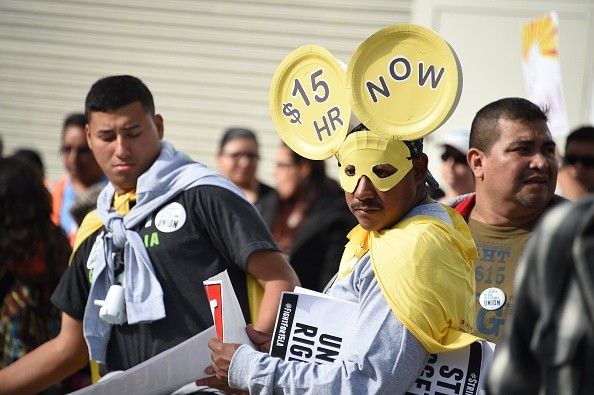
On October 13, California Gov. Gavin Newsom signed a new law that would raise the minimum wage of healthcare workers to $25 an hour.
Sen. Maria Elena Durazo authored the Senate Bill 525, which replaces California's current base pay of $15.50 an hour for workers. The new law includes nurses, janitors, and resident physicians in healthcare facilities.
Newsom Approves New Law for California Healthcare Workers
Newsom signed the new law, allowing healthcare workers to sue employers if they do not implement the new minimum wage scale. Durazo acknowledged Newsom for signing the legislation.
"Thank you, Governor Newsom, for signing SB 525, a historic investment in our healthcare workforce," she posted on X, formerly Twitter.
Assemblyman Robert Rivas, Speaker of the Assembly, honored Newsom's approval of the new law. He said that the bill acknowledges the value of healthcare workers.
Rivas said the new law was a long overdue and much-earned raise for California's healthcare workers. He was grateful that Newsom showed the actual quality of a leader and signed the law.
He added that the new law benefits local economies, positing a positive outcome for everyone. According to the Los Angeles Times, the law was signed after thousands of Kaiser Permanente workers quit last week, which was recorded as one of the biggest strikes by healthcare workers in US history.
Senate Bill 525
According to The Epoch Times, more than 10,000 full-time employees and healthcare facilities will receive a salary increase. The new minimum wage is less for workers at hospitals that are partly assisted by governmental funds, rural healthcare facilities, or county facilities in areas with 250,000 or fewer residents.
The employees will get $18 an hour starting June 1, 2024, with 3.5 percent yearly increases before the minimum is raised to $25 an hour on June 1, 2033. In primary care clinics, community clinics, rural health clinics, and urgent clinics, the minimum wage will go up to $21 per hour on June 1, 2024, and increase to $22 an hour on June 1, 2026. The pay will peak at $25 per hour on June 1, 2027.
Furthermore, for all other covered healthcare facility employers, the rate will increase to $21 per hour on June 1, 2024, and climb to $23 an hour on June 1, 2026, before reaching $25 an hour on June 1, 2028.
Once the $25 hourly wage is attained for each healthcare sector, California's finance director will calculate an adjusted minimum wage that increases by at least 3.5 percent.
The legislation aims to address a patient care crisis caused by a healthcare workforce shortage, according to Durazo.
"Women and workers of color who are the backbone of our healthcare system have been underpaid and devalued for decades," she said in a press release on February 15.
Related Article : Pregnant Women Becoming More Reluctant to Get Vaccinated, CDC Reports
© 2025 HNGN, All rights reserved. Do not reproduce without permission.








